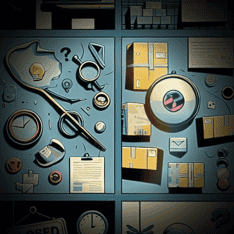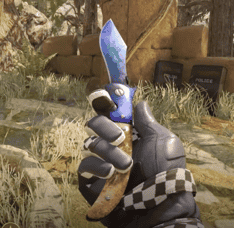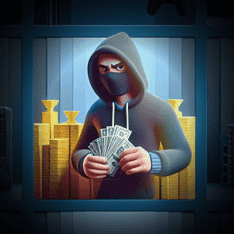![Post Image about The Secret Weapon of Elite Poker Players: Unmasking HUDs in [year] - Poker Tools Blog](https://betterchecked.com/cdn-cgi/image/format=auto,metadata=none,onerror=redirect,fit=scale-down,width=234,quality=35/https://cdn.sanity.io/images/6llxa8fs/production/c3671c6f26d82d64abef68ca4500f2cdff798431-1024x1024.png?w=1024&fm=png)
The Secret Weapon of Elite Poker Players: Unmasking HUDs in 2024


Poker Bluffing: This guide gives you the lowdown on how to bluff in poker. It helps you get into your opponents' heads and know when's the best time to bluff. The guide also talks about common screw-ups to avoid and how bluffing can level up your poker game.
Ever wonder why your poker bluffs aren't working? Maybe you're not playing the mind game right. Bluffing is cool, but are we doing it right? Are we overdoing it and messing up? (Oops! :P)
The thinking behind these online bluffs is worth checking out. We gotta see if we're really using our brains or if we need to rethink our game plan.
(Because, who needs a brain, right? Haha!) Buckle up, things are about to get interesting.
In the poker world, it's not just about the cards you hold. It's also about reading your opponent's feelings and how they can impact their bluffing game.
Poker isn't just a numbers game; it's about understanding people too. Imagine sitting across from your opponent, noticing their every move. A twitch, an eyebrow raise, or even a nervous laugh could give away their bluff. Spotting these signs is like having a secret weapon in the game.
But what if the roles reverse? Emotional decisions can lead to bluffing mistakes. This is your chance to use their emotional weakness to your advantage. But remember, managing your own emotions is equally important.
Keeping your cool while bluffing Responding to other players’ moves is key in poker. Don't let your feelings mess up your strategy. Stay chill, keep your poker face on, and remember - it's all part of the game.
Now, let's talk about fear. Some might call it The Fear Factor (cue dramatic music). Using emotion as a tool can be a strong strategy. Making opponents feel scared or doubtful can change how they react to your bluff. Remember, poker is often a mind game. Mess with their heads, make them question their decisions, and watch them crumble under pressure.
But be careful - emotions can run high during intense poker games. You might get emotionally drained, leading to bad bluffing decisions when you're tired. Being aware of this can prevent expensive mistakes. So, take a break, breathe, and know when to step back.
In the end, it's about understanding the player, not just the cards. If you can make their heart race, you'll have the upper hand, no matter your cards. Use those emotions to your benefit, and the chips will come rolling in. Are you ready to level up your poker game?;)
If you play poker, you've probably heard, 'It's not about the cards you get, but how you use them.' This is super true when it comes to bluffing - no kidding, Sherlock! How well your bluffs work depends on how you think, so it's important to know how to use this to your advantage.
![Post Image about The Secret Weapon of Elite Poker Players: Unmasking HUDs in [year] - Poker Tools Blog](https://betterchecked.com/cdn-cgi/image/format=auto,metadata=none,onerror=redirect,fit=scale-down,width=234,quality=35/https://cdn.sanity.io/images/6llxa8fs/production/c3671c6f26d82d64abef68ca4500f2cdff798431-1024x1024.png?w=1024&fm=png)
The Secret Weapon of Elite Poker Players: Unmasking HUDs in 2024

Crunching Numbers Like a Pro: Mastering Equity Calculators

Poker Tools for the Ambitious Player: How to Reach New Heights in Tournaments

Unlocking Pro-Level Play: The Secrets of Hand Ranges

Legends in the Spotlight: The Best Poker Matches of the Last Decade
![Post Image about Decode Your Mistakes: The Ultimate Guide to Hand Analysis in [year] - Poker Tools Blog](https://betterchecked.com/cdn-cgi/image/format=auto,metadata=none,onerror=redirect,fit=scale-down,width=234,quality=35/https://cdn.sanity.io/images/6llxa8fs/production/263c0839fd79681c48f6a7ab68404064588570b7-1024x1024.png?w=1024&fm=png)
Decode Your Mistakes: The Ultimate Guide to Hand Analysis in 2024

The HUD Hall of Fame: Timeless HUD Poker Tools That Have Stood the Test of Time
From my time playing poker, I've learned that good bluffing comes from understanding what your opponent is thinking. You need to guess their thoughts and use this knowledge to help you win.
The trick is to watch your opponent's betting patterns, body language, and other clues. This will help you make better decisions about when and how to bluff. Remember, bluffing is risky and it's not for everyone. But, if you're okay with taking a risk (you brave soul, you), understanding your opponent's thought process is the first step to getting really good at bluffing. :)
As a poker player, I've learned that bluffing isn't just about the cards you have - it's more about knowing your opponents and getting their vibe. Most players make choices based on their gut feelings and past games. If you pay attention to how they play, you can figure out their game style and use it to your advantage. For example:
Bluffing is all about understanding people and being able to read your opponents like a book. So, if you're sick of losing and want to up your game, you might want to start getting inside your opponents' heads. And no, I'm not suggesting brain surgery here, haha.
Ever been outsmarted in a poker bluff? It sucks, right?
Maybe you're not doing it right, or you're just relying too much on this sneaky move.
But hey, there's a way to level up your bluffs using solvers.
These tools are super useful - like a secret weapon, giving you the best bluffing strategies.
Now, let me tell you about my experience with these cool tools.
At first, I was skeptical. I wasn't sure if they could really boost my bluffing game.
But, since I kept losing (and who likes losing?), I thought, why not give it a shot?
And guess what? It worked! :) These emotionless machines gave fresh insights.
They showed exactly when and how to bluff in different situations.
My bluffs weren't just random guesses anymore - they were spot-on and well planned.
The change was huge.
I started using solver strategies like a pro.
The results were obvious.
With the help of solvers, my bluffs became cool, strategic, and ruthless.
I totally changed my bluffing style - talk about a glow-up!
If you want to seriously up your poker game and turn those losses into wins (because who doesn't?), think about joining me on this ride.
Together, we can rule the poker table, one bluff at a time.
So, ready to become a poker legend? ;)
After spending hours on my poker solver, I started questioning if it was really helping. Sure, it gave me perfect bluffing strategies - but using them in real games against actual people? Not as easy as pie, let me tell you. A recent failed bluff that the solver suggested made me rethink things. It hit me like a ton of bricks: successful bluffing isn't just about knowing the game; it's about understanding people.
When my opponent surprised me with hidden trips, it made me rethink my strategy. But this only made me want to get better. I realized that while solvers can help with the technical side of poker, they can't teach you how to read people. So, I decided to look back at my past games and see where I messed up. My goal? To mix Game Theory Optimal (GTO) strategies with real poker experience. Maybe then, I could actually get good at bluffing.
Right now, I'm still getting better. My so-called "optimal bluffs" are far from it. As I gear up for my next game, I'm aiming to play better. Losing sucks :(, and it's about time I looked at my game and applied what these solvers teach about bluffing. But here's a thought - could depending too much on bluffing be a bad thing? This guide seems to warn against it, but should I listen?
Fast forward to today, after years of studying bluffing, I've learned that poker bluffs are both interesting and tricky. Understanding the psychology behind them is key to winning. When bluffing, it's important to:
Solvers can definitely help make better bluffing decisions online. But they have their limits. Common mistakes like misunderstanding the situation or being too confident in your bluffs can lead to major losses. Solvers can be a great tool for improving your bluffing game, but only if used right. They're not a magic solution that will instantly make you a master bluffer - as much as we'd all love that! Instead, they should be used as part of a strategy that involves understanding human psychology and learning from real poker experience.
Ever been deep in an online poker game, heart pounding as you plan your next bluff? You're not alone. Bluffing is cool, but tough, and getting good at it can feel risky. But there's a way to make your bluffs less of a gamble: solvers. These tools are super helpful for making smarter bluffing choices. They simulate tons of situations, giving you data-driven knowledge that has seriously upped my game. If you're bummed about losses, solvers could be the answer to boost your bluffs - no kidding!
Wondering how these solvers work?
Ever felt bummed when someone calls your poker bluff? I've been there, looking at the chips I just lost. Was my bluff too easy to spot, or was it as clear as a neon sign in Vegas? Maybe I misread the table? Could be that I leaned too much on this shaky tactic - like leaning on a house of cards, haha.
It'd be good to go over my game, get the hang of bluffing psychology, and dodge usual blunders. After all, bluffing should be a skill, not a gamble - unless you're into that sort of thing, of course. ;)
Ever lost a poker game, even though you know how to bluff? You're not alone. Lots of people have been there, watching their chips disappear and questioning their skills. It's tough to realize that just knowing how to bluff isn't enough - shocking, I know.
The real challenge is using it right in your games. This guide warns against relying too much on bluffing. Checking out your game might help. There could be loads of reasons why you're struggling with poker.
You might need to rethink your poker strategy. Falling into these traps can hurt your game :( This guide will keep giving you poker tools and strategies to improve your game.
As a fan of bluffing in games, I admit - being too cocky in online games has made me lose before. Ever thought you've fooled everyone and decided to go all in with an 'okay' hand? Spoiler alert: it usually doesn't work out. Getting busted by a smart opponent who sees through your bluff isn't fun - understatement of the century, right? So, here's a tip (free of charge): save your bluffs for special situations and stick to a solid poker strategy. Relying too much on bluffing is like betting all your money – eventually, you could end up with nothing. But hey, it's not all doom and gloom :). Poker bluffs are an interesting and important part of the game. Getting good at bluffing can level up your poker skills, but it requires a deep understanding of the mind games and strategy involved. This guide will dive into the tricky world of poker bluffs, explaining when and why they work, and giving practical tips to improve your bluffing game.

3 bullish arguments that Bitcoin price just bottomed at $53K

Messi & $WATER promotion: Solana token's wild rise and ethical concerns

Mid-March deadline for Solana ETF: Analyst predicts big moves

Germany sells BTC: government readies $276M Bitcoin sell-off

Why dropshipping is bad in 2024: truth behind the failure rate

Trade skins for PROFIT: 5 ways to make it work

Ukraine's shocking PS4 farm bust for illegal FIFA coins

Hypedrop closing: exit scam claims & withdrawal issues

Hypedrop crypto hack: Alphapo's $61M loss in 2023
By combining theory with real-game examples, this guide aims to give you the tools to make bluffing a strong strategy at the poker table. So, whether you're an experienced player or a newbie looking to get better, this guide on the art of poker bluffing should be enlightening. And if it's not... well, we tried.
This article was written, checked and verified by multiple authors to ensure maximum accuracy and up to date data. We strive for providing the best and most helpful resources about Poker Tools available.

Have suggestions or want to become an author for our poker tools magazine as well?